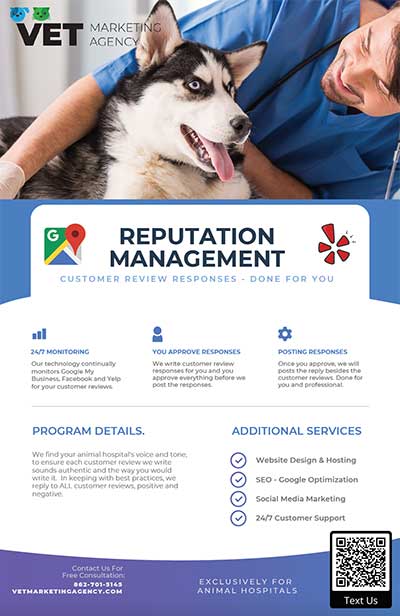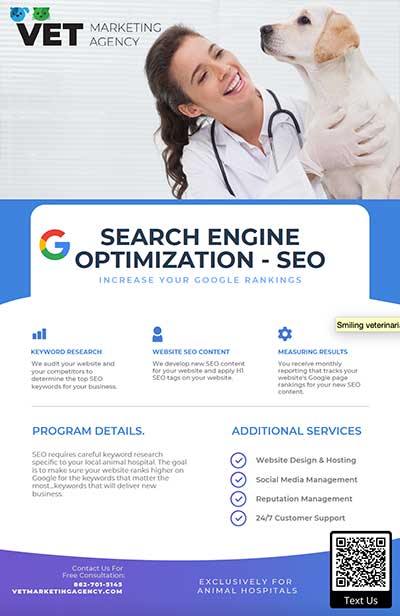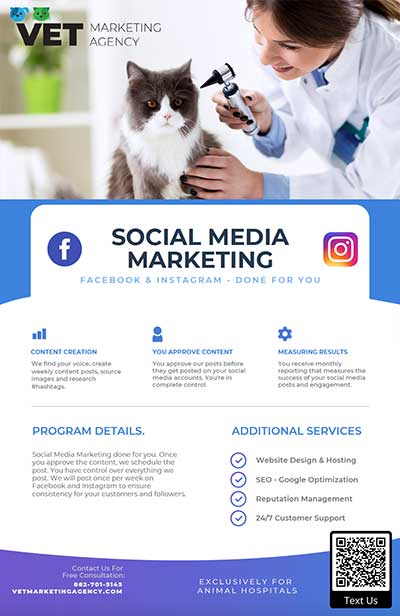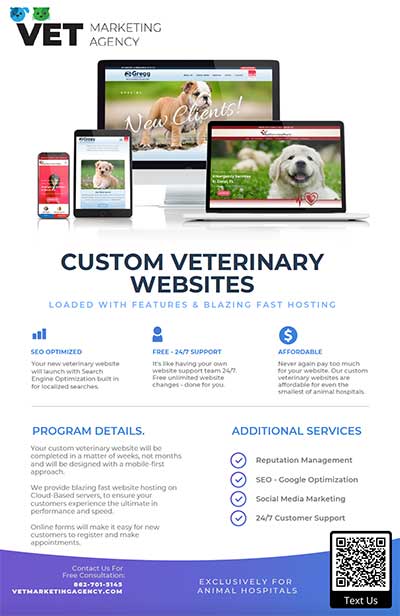The Reputation Management Tips Veterinary Practices Need to Know
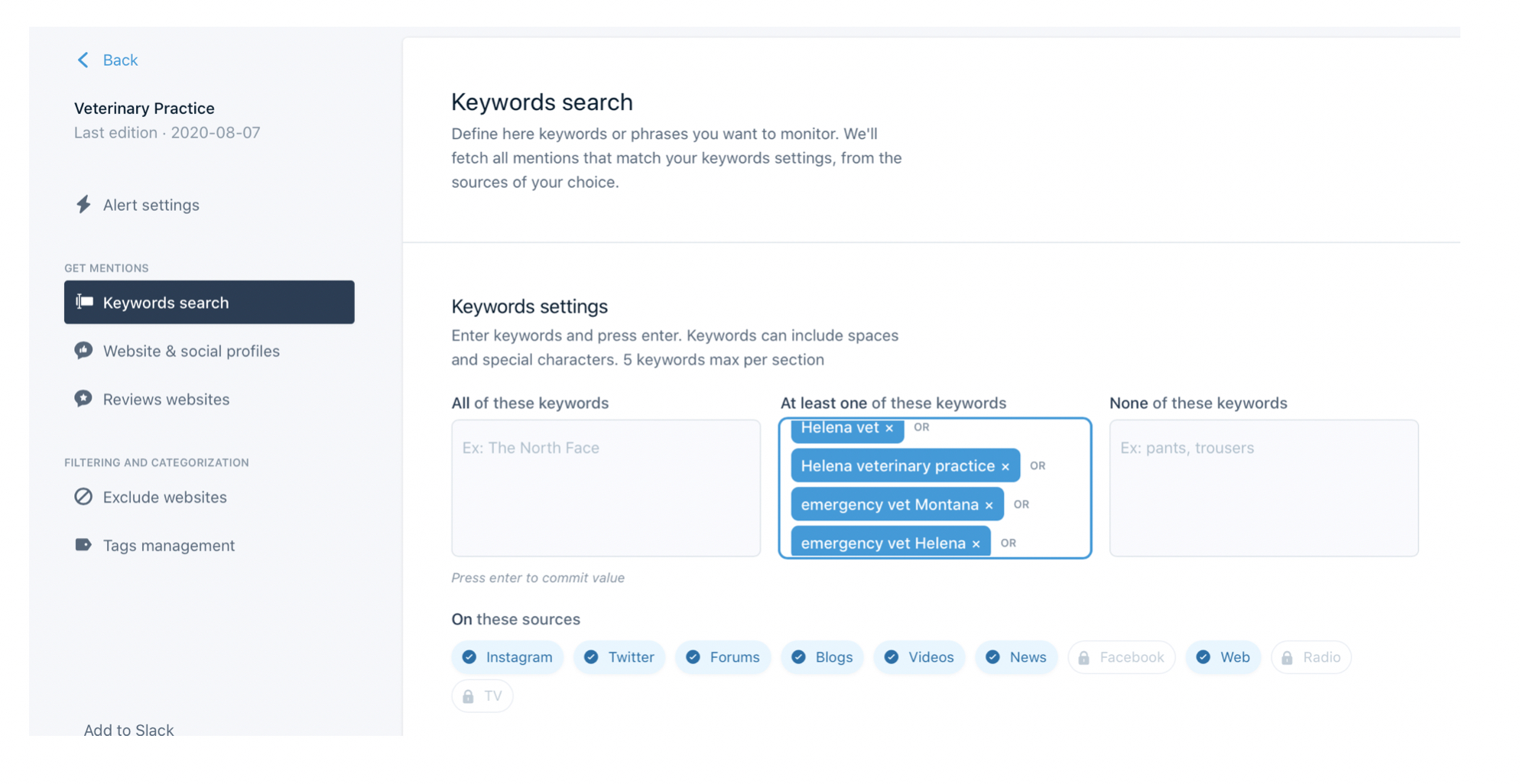
People rightfully view their pets as a core part of their family. Their golden retriever isn’t “just” a dog; it’s the pup that’s slept on the end of their bed for eight years, who has woken them up with slobbery kisses each morning. As a result, people are particularly cautious when choosing a veterinarian to keep their pet healthy.
Reputation management should be a priority for veterinary practices looking to increase their client base. Vets with strong reputations online will be well-received by potential clients, as they’ll be seen as more trustworthy than the competition.
In this post, we’re going to look at three essential reputation management tips veterinary practices should be prioritizing and discuss how to implement each one.
1. Gather Client Reviews Online
Gathering positive reviews from clients (aka the owners of your patients) will be one of the most important things you can do for online reputation management for your veterinary practice.
Data backs this up; 97% of users read reviews for local businesses, and 91% of 18-34-year-old users trust online reviews as much as personal recommendations from people they know in real life. Reviews are the most trusted online media you can have, and they can also boost your search visibility, too.

Start by focusing on collecting reviews on Google My Business (GMB). This will create a local listening in Google’s database so that you can appear in relevant searches. Highly-rated veterinary practices will be at the top of these results.
You can also try to collect reviews on other platforms, including Facebook and Yelp, and list your reviews on your site.
In order to increase the number of reviews you have online, you can take the following steps:
- Ask happy and long-term clients face-to-face if they’d be willing to leave reviews about their visit. Let them know that it’s a huge help to your business.
- Send clients follow-up emails the same day or one day after their appointment. Ask them to leave a review, including links that directly open your GMB review page. (Avoid sending these emails to clients who have gotten bad news about the health of their pet, as they have enough to worry about.)
- Feature signage near the checkout area encouraging users to leave a review. Consider offer an entry into a monthly drawing if users leave a review, where the winner gets a free bottle of dog shampoo or a month of heartworm medication on the house.
Always make sure that you’re responding to reviews, too, especially when they’re less than positive. 89% of customers read business’s responses to reviews, and engaged businesses who respond frequently have more positive reputations overall.
2. Feature Strong Veterinary About Us Pages
It’s essential to have a strong “About Us” page for your veterinary practice, where you detail your practice’s mission, ethics, and doctor profiles. This is where you can establish credibility and build rapport, both of which can improve your online reputation.

A strong About page should do the following:
- Have a high-quality picture of your entire staff, if possible. People like to know who will be working with their pets, and this boosts the feeling of transparency.
- Detail what makes your practice different. Do you offer both holistic and conventional veterinary treatment? Can you provide vet care to more unusual pets, or do you do home visits? Highlight your experience, any ethical missions that you have, and why you started the business.
- Feature each doctor clearly. Every doctor at your practice should have their picture and a quick blurb about their experience on your About page. To make your practice feel more accessible, sprinkling in a few personal details like “she has six dogs of her own!” or “he loves gardening in his spare time” can go a long way.
3. Take Advantage of Social Listening
Social listening is the practice of using online monitoring and listening tools to see what people are saying about your practice, and not just to you.
This is important because you can get a realistic view of how your veterinary practice is perceived, and what your current online reputation actually is. It will also give you a chance to potentially jump into public conversations to try to rectify any concerns or complaints so that they don’t go unchecked.
One of the best social listening tools is Mention, though there are other options available. Mention allows you to track specific branded terms, keywords, and hashtags related to your brand and industry to see how people are talking about your brand.

Whatever social listening tool you use, set up notifications or check in daily to make sure that you aren’t missing anything crucial that needs your attention right away. Staying on top of your online reputation is important.

